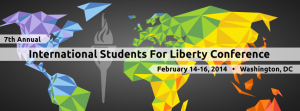On Libertarian Factionalism, Our Critics, Conservative Associations and State Power
Featured Posts, History, Libertarian TheoryThe generation of libertarians seen in such outfits as SFL excites and encourages me. I especially approve its efforts to cleanse the movement of the type of bigotry that emerged after years of the libertarian movement’s circumstantial alliance with conservatives to battle against New Deal liberalism. Finally, young libertarians seem poised to differentiate themselves entirely from rightwing mythology and error.
I worry, however, that many of the young libertarians, particularly centered around the DC institutions, might lose sight of the importance of radical anti-statism. This all relates to something I can best explain by way of a little autobiography.
I was always a cosmopolitan libertarian. Although I had my origins on the right, I have favored gay marriage and open borders since I was in junior high in the mid-1990s. I have always disliked the notion that white upper middle class men were somehow the most persecuted minority. I have always seen law enforcement’s treatment of people of color as one of the greatest problems in American culture. I have, with varying degrees of intensity, long been sympathetic to such leftish concerns as feminism and the need for the poorest to be liberated from the state infrastructure that keeps them down.
There are many like me who in the 1990s tended to see our values most represented in institutions like CATO and Reason, and who were suspicious of the seemingly conservative tendencies of other libertarians, such as those associated with Ron Paul.
…
On Libertarian Factionalism, Our Critics, Conservative Associations and State PowerRead More »
On Libertarian Factionalism, Our Critics, Conservative Associations and State Power Read Post »

